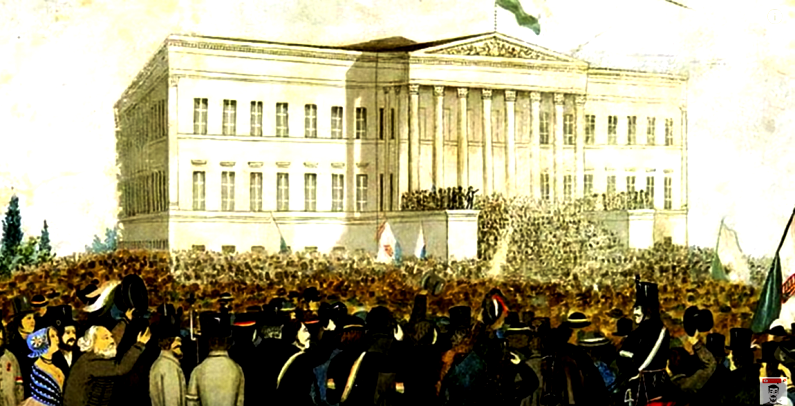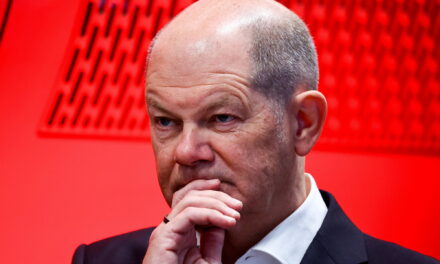Now, in front of the gloomy background of the war taking place in our neighborhood, the question arises again:
what is this day about? Just a beautiful historical date, or does it tell us, the people of today, something?
In the 19th century, the term "spring of peoples" became widespread in connection with the revolutionary movements of peoples who wanted freedom. The Hungarians put the crown on this, because when Europe was quiet again, the glorious spring campaign followed in Hungary, which also broke the Austrian imperial forces. That is why even the Habsburg power had a problem with how to avoid the message of this day. Since then, oppressive powers have tried to forget it, bypass it, and blend it in with other anniversaries. Unsuccessfully.
1848 is indelibly embedded in the nation's memory. We draw strength from it in difficult situations. When the National Socialist German Empire threatened Hungary, those fighting against it united under the name of the March Front, and in 1956 we also remembered the March when we tore the coat of arms of the communist dictatorship from the Hungarian flag. And our uprising, which started the fall of the Soviet terror, was fed both instinctively and consciously from 1848. The National Guard and the various national commissions already referred to this tradition in their names, but it was also a tradition: the 56 lists of demands reminded us of the 12 points. And when foreign tanks crushed our freedom struggle with traitors hiding in their shadow, what kind of slogan was born? MUK was the abbreviation: "we start again in March!" Why in March? Because we have returned to this tradition. It gave me strength and hope.
And when, in the Kádár era, the authorities crushed the celebrants, it was driven by the fear that the desire for independence, for a free country, had not yet died out in us.
In 1957, Tamás Tűz described the state of mind of those commemorating March 15 as follows:
"Cover the flag with black!
March has never been so bitter,
because the wind smells of blood
and the celebration is dying on our lips.
Because the wind also carries the smell of blood
and the stone splits
And pale shadows
appear from the depths."
In 1981, our group of friends founded a commemorative medal with the aim of awarding it to someone for their services to the Hungarian country on March 15th of each year. (See also: March 15 commemorative medal 1981-2010, Commemorations and documents. Budapest, 2012, Széphalom Könyvműhely és Méry Ratio.) We did this for 30 years in an unbroken line. The last award ceremony took place in 2010. Remembering this, I once said:
— I remember that one of those days, on March 15, a policeman in Székesfehérvár busted me because I had the Kossuth coat of arms stuck in my buttonhole. Everything is understandable if we start from the fact that the revolution in 1956 dates back to 1848 in terms of traditions. It is enough to recall the Kossuth coat of arms, which the revolution displayed together with the hole-punched flag that represented the denial of the dictatorship. I think the fear of power was understandable. Something had to be done. It was feared that we would be freed from the shackles of the so-called communist system as the last minions, stigmatized. While ordinary people could feel that the grip of the dictatorship had eased and living conditions had become easier, we noticed with increasing alarm the disintegration of the community. We have seen that the only life strategies allowed by power were those based on selfishness. As long as someone was given free rein to create an independent existence, until he took some kind of community step, he was, however, exposed to persecution. So, in this environment, we tried to create a model for recognizing the work and achievements for the Hungarian community.
Since then, we have understood each other for many years, and we have slowly learned to openly stand up for Hungarian freedom again. There were times when we had to wade through a sea of lies, when the whistling noisemakers tried to disturb our celebrating masses. but none of this was an obstacle to the fact that the Peace March, expressing the will to protect the nation, grew into a huge stream this year and showed the Hungarians' passion for independence. Following the words of József Utassy, we oppose the forces that want to block our path with vile emotions and false news:
"Get on your feet, Petőfi!
I shake your grave: Speak once more about Freedom!"
Author: András Kelemen
(Cover image source: YouTube)












